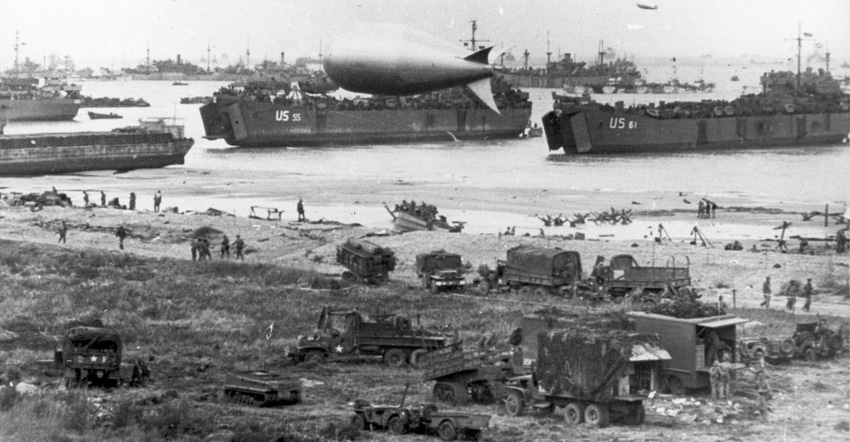
Long before Husker Harvest Days was buzzing with activity on a site west of Grand Island, Neb., that same location was busy for a different reason — war.
Nebraska, like so many Great Plains states, was a key site for the manufacture of military materials and training exercises during key worldwide conflicts. The 900-acre HHD show site had a storied history before the farm show was established.
When the first tractors and disks showed up in October 1977 to prepare the site for the first HHD the next fall, the parcel had been used as leased pasture as part of the gigantic 19-square-mile Cornhusker Army Ammunition Plant.
CHAAP was built and became fully operational on March 24, 1942, as a U.S. government-owned, contractor-operated facility for the production of artillery shells, mines, bombs and rockets. The first bomb was produced from the plant that same November.
The plant continued this role through the course of three wars, including World War II, Korea and Vietnam, operating on and off for 30 years. The most recent operations ended in 1973.
Quaker Oats Ordnance Corp., which was a subsidiary of the Quaker Oats Co., produced bombs, shells, boosters and supplementary charges at the plant from 1942 through the end of World War II. At its peak, the plant employed 4,229 men and women workers, loading 260- and 90-pound fragmentation bombs; 1,000- and 2,000-pound general demolition bombs; and 105-mm high explosive artillery shells.
During the war, the plant was Grand Island’s largest industry. The plant remained on standby status for munitions production from 1945 through 1950. During that standby period, many of the CHAAP buildings were used for grain storage.
When the Korean War broke out in 1950, Mason and Hangar-Silas Mason Co. reactivated artillery shell and rocket production at the plant until it was once again placed on standby status in 1957. When the U.S. joined the conflict in Vietnam, the plant was reactivated for a second time to produce bombs, projectiles and microgravel mini mines.
Mason and Hangar continued as operators of the plant. For both Korea and Vietnam, the plant manufactured 500- and 750-pound bombs that were assembled for the Army Air Corps and Air Force.
CHAAP has remained on deactivated status since the plant last ceased operations at the end of Vietnam. Driving west of Grand Island on the way to HHD, it is interesting to think about the crucial role CHAAP and plants like it played in U.S. war efforts around the world.
About the Author(s)
You May Also Like






